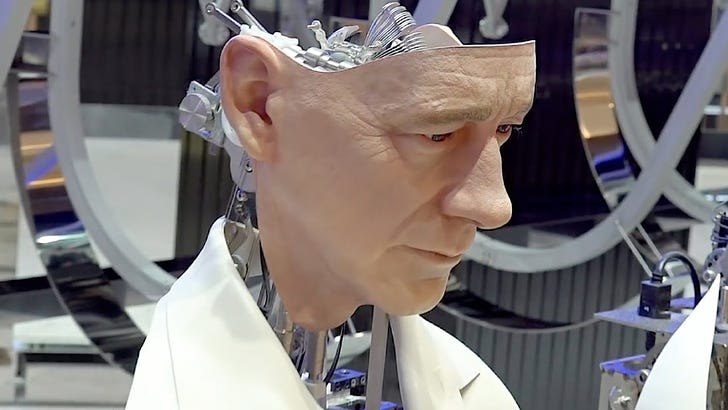We often sit in the midst of chaos. It certainly feels like it and has felt like it over the last 3 years. But take a step back 100 years when electricity transformed the tools that we now use every day. We take the source for granted even if are now looking at ways to generate that source.
In and amongst the chaos we are seeing the next technological trend unravel before our very eyes. Artificial intelligence is turning our newer digital tools into intelligent ones, moving from dumb to smart to dramatically change how we do things. Health diagnoses will involve doctors and diagnostics and data. And software is already having a real-world impact on the decision making. We're not quite at Ex-Machina but a future with smart machines is very much in the world that we are in.
AI will shape what we do and say, and will help to filter what we need to know. If you think about the amount of information out there, we are already being influenced by algorithms, notably your social feed and supposedly relevant searches that you make on Google. In fact, the Internet is not what you think it is.
But why mention AI now, when we know it is affecting our lives? Because AI is a central driving force in the next stage of technology - all the headlines you see now are either smaller forces or just noise as we move further towards this new phase. Your crypto portfolio may have tanked, Google Glass may be back, and should you care whether this is another tech bubble bursting? Keep your eyes on the North Star!
Stay Curious,
Onward! - Rahim
Classifieds support the running of Box of Amazing. Book your spot.
Technology is accelerating far more quickly than anyone could have imagined. During the next decade, we will experience more upheaval and create more wealth than we have in the past hundred years. In this gripping and insightful roadmap to our near future, Diamandis and Kotler investigate how wave after wave of exponentially accelerating technologies will impact both our daily lives and society as a whole. What happens as AI, robotics, virtual reality, digital biology, and sensors crash into 3D printing, blockchain, and global gigabit networks? How will these convergences transform today’s legacy industries? What will happen to the way we raise our kids, govern our nations, and care for our planet?
William Irvine often tries to point people towards a little-discussed fact of human life: You always know when you’re doing something for the first time, and you almost never know when you’re doing something for the last time.
The global economy isn’t looking great right now. U.S. GDP shrank last quarter, despite a hearty showing from consumers. Inflation is high; markets are down; both wages and personal savings rates show some troubling statistical signals.
Stores running out of cooking oil. Gas prices soaring. Farmers scrambling for fertilizer. Nations rethinking alliances. We zoom in on the war's seismic, far-reaching repercussions.
Everything and anything can be a trend on the internet. Why are we so determined to name them? One of the recent trends on TikTok is an aesthetic called “night luxe.
A surprising number of the top 100,000 websites effectively include keyloggers that covertly snag everything you type into a form.
The approach is pretty simple. When the market falls, you invest money... but not any more.
Whom should you marry? This may be the most consequential decision of a person’s life. The billionaire investor Warren Buffett certainly thinks so. He calls whom you marry “the most important decision that you make.”
All of a sudden, it feels like Web3 is everywhere. The money, the buzz, the name all make it seem like Web3 will inevitably be the next big thing. But is it? And do we even want it to be?
Bitcoin was conceived more than a decade ago as “digital gold,” a long-term store of value that would resist broader economic trends and provide a hedge against inflation. But Bitcoin’s crashing price over the last month shows that vision is a long way from reality.
When people get into their 40s and beyond, their close-up vision starts to worsen. For many people, cranking up the font size on a phone or maxing out the brightness on a computer is the only way to be able to read some text.
Pharmaceutical company Eli Lilly last week disclosed the latest data from a phase III trial of its experimental type 2 diabetes and obesity drug, tirzepatide: People who took the drug lost up to 22% of their body weight and achieved far greater weight loss on average than the placebo group.
While immortality might forever be out of reach, a long, healthy retirement is the stuff dreams are made of. To that end, a recent study suggests that the kinds of memory problems common in old age can be reversed, and all it takes is some cerebrospinal fluid harvested from the young.
A journey to the outer limits of content moderation.
As the world warms, non-native species threaten Earth's last great wilderness.
Box of Amazing is made possible by some amazing advertisers. For more information and to secure a slot, fill in this form.
If you enjoyed this briefing, would you share this on LinkedIn, Whatsapp or email with your colleagues and friends?



